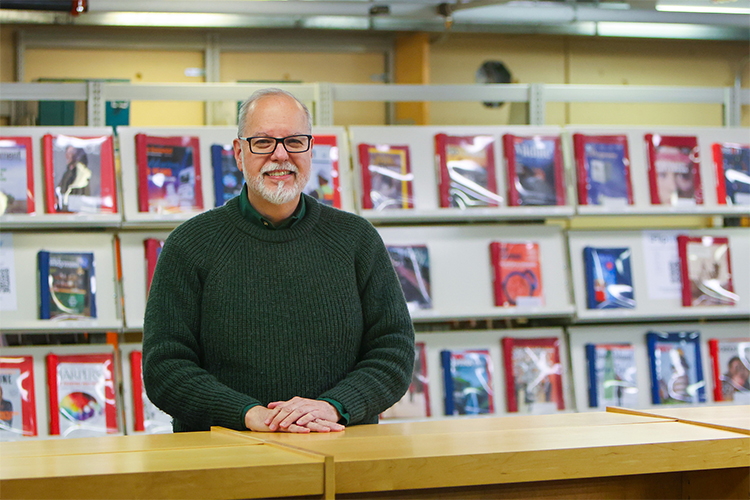Employee Spotlight: Michael Marrapodi

11/27/2024
When he’s not cooking up one of his favorite pasta dishes, Michael Marrapodi is busy finding new and innovative ways to improve the online learning experience for students.
With more than two decades of experience in the online learning space, the New Jersey native and current East Greenwich, RI, resident has joined the CCRI team as the college’s new Executive Director of Online Learning. Marrapodi has worked in education at all levels, serving as a teaching, principal, and superintendent equivalent in New Jersey and New England private schools before diving into the online sector.
Since 2004, he has held key roles at some of the world’s largest online learning institutions, including the University of Phoenix and Walden University, in addition to his work at Quincy College and Cambridge College. Prior to joining CCRI earlier this month, Marrapodi served as the Dean of Online Programming and Associate Provost for Online Programs at Cambridge, utilizing his skills as a transformational higher education leader to drive program expansion and increase enrollment by collaboratively resolving problems to meet organizational challenges.
From growing up on a farm in rural New Jersey just 40 minutes north of Princeton University to now leading the development and growth of CCRI’s ever-evolving online programming, Marrapodi is excited for the opportunity to put his personal stamp on the college’s continuing efforts to meet students where they are and increase educational access for all Rhode Islanders.
A great deal of your work has been in the online learning space, but you also have a diverse skill set that includes expanding programs and managing budgets. How has this benefitted you through the years?
Successful programs grow and attract new learners. With program growth comes new financial opportunities, such as more resources to meet growing demands. I have been fortunate to see program growth in each position I’ve held, which has fueled expanding budgets and opportunities that additional revenue provides.
What are some of the biggest modern-day challenges with online learning and how have you worked to address those?
At one time, access to the internet and sufficient hardware was a barrier to many students seeking an online education. In most parts of the world, this barrier has been removed. What remains a challenge is offering quality, rigorous programs substantially similar to their on-ground counterparts. This involves keeping up with technology advances and offering continuous training for faculty and students in online best practices. In previous settings, I have introduced academic engagement calculators, course mapping processes, and quality assessment tools (like OSCQR) to keep up with the growing demand for high-quality online education.
What has been your approach to the increasing use of AI by students and faculty?
The explosive growth of AI in a very short period of time caught many higher education professionals off guard. Training for faculty in basic AI tools is essential to encouraging the use of these tools in the classroom today. Demonstrating what AI can and cannot do is important so faculty can make the best use of these tools in their respective classrooms. Students need to be educated in the practical, ethical, and appropriate use of AI. While this can be done through separate training opportunities, interacting with AI under the tutelage of a knowledgeable instructor will be the most effective way to prepare students for the AI world they are facing now.
What are your goals at CCRI?
The first goal for any educational institution is the success of its students. The CCRI online program appears to have a solid foundation, which I was hired to build on. To do this effectively, I will need to work closely with my team to provide the resources necessary for continued student success.
A second goal is to engage faculty and other stakeholders to create and deliver outstanding online courses and programs. Online learning is still a relative newcomer to the world of higher education. As such, no one is expected to intuitively know how to navigate the online space effectively without resources and coaching.
A third goal is to “demystify” technology for all instructors, online and on-ground. The more faculty are comfortable with the learning management system, video recording tools, electronic library resources, open educational resources (OER), etc., the easier it will be to incorporate these in the teaching and learning enterprise, which will help accomplish goals 1 and 2.
We hear you enjoying cooking in your spare time. Any specialty dishes that are you favorites?
Coming from a long line of Italian cooks, my favorite dishes involve pasta. I especially enjoy cooking a variety of sauces, such as white clam, creamy sausage, and Bolognese.



